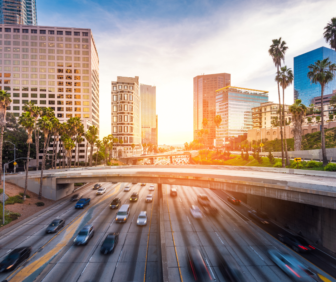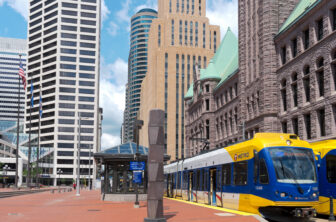![]() So Grand Rapids offered Amazon up to $2 billion in tax breaks to locate their HQ2 in their region. As John Gallagher points out in a Detroit Free Press article on the topic, big tax breaks were offered across the nation. What is more noteworthy in Gallagher’s article are the comments by Birgit Klohs, metro Grand Rapids’ lead economic developer, on why Grand Rapids didn’t even make it into the final 20. Gallagher writes:
So Grand Rapids offered Amazon up to $2 billion in tax breaks to locate their HQ2 in their region. As John Gallagher points out in a Detroit Free Press article on the topic, big tax breaks were offered across the nation. What is more noteworthy in Gallagher’s article are the comments by Birgit Klohs, metro Grand Rapids’ lead economic developer, on why Grand Rapids didn’t even make it into the final 20. Gallagher writes:
Klohs said Wednesday that Grand Rapids failed to make Amazon’s shortlist for the same reasons cited for Detroit’s failure — not a deep enough talent pool and not enough public transportation options. “It was talent, it was transit,” she told reporters. In the future, she said, Michigan needs to work on education, transportation and multiple other challenges if it wants to compete for the likes of an Amazon second headquarters. “We’ve got to do a much better job,” she said. “There are no silver bullets.”
As we explored in a previous post, what matters most to high wage, knowledge-based employers like Amazon is college-educated talent. The regions with the highest concentration of those with a four-year degree or more are going to be the places where high-wage, high-growth enterprises concentrate. Not low tax, small government, so-called business-friendly regions.
What working on “education, transit and multiple other challenges” requires are public investments. That means raising taxes as we lay out in our new state economic policy agenda. And it means developing education and infrastructure for the 21st Century. Building all Michigan children to be career rock climbers, rather than ladder climbers. And an transportation system that provides plenty of transit, not just roads.
Governor Snyder’s 21st Century commission on education and infrastructure are a good starting point for what needs to be done for Michigan to be world class in the education and infrastructure of today and tomorrow. The combined price tag of the two commission recommendations is $6 billion a year. That requires raising taxes. As we say in our policy report:
The places with the strongest economies are those that combine high quality education systems and high quality of place that retains and attracts mobile talent. Both education and placemaking require public investments. These types of public investments, paid for by our taxes, are the state policy playbook most likely to return Michigan to high prosperity, creating an economy with lots of good-paying jobs.
Imagine if we had spent the last two decades not cutting taxes, but investing in education from birth through college and building a 21st Century transportation system. It’s highly likely both metro Detroit and Grand Rapids would have been strong competitors for Amazon HQ2 and all the other high-wage job creation that comes from being an attractive place to locate a knowledge-based enterprise. We have been following the wrong path, states like Minnesota have been following the right path. It’s time for us to change course. But will we?
We will know that metro Grand Rapids is serious about working on “education, transit and multiple other challenges” when the Right Place and other economic development officials and entities push to raise taxes. Saying you want education and infrastructure is easy, paying for it is hard. They and similar organizations across the state for decades have been part of the push for lower taxes as the key to economic development. Amazon made clear that it is time for a fundamental change. Only time will tell if those in charge of economic policy and programming are ready to take the lead to make that change happen.







